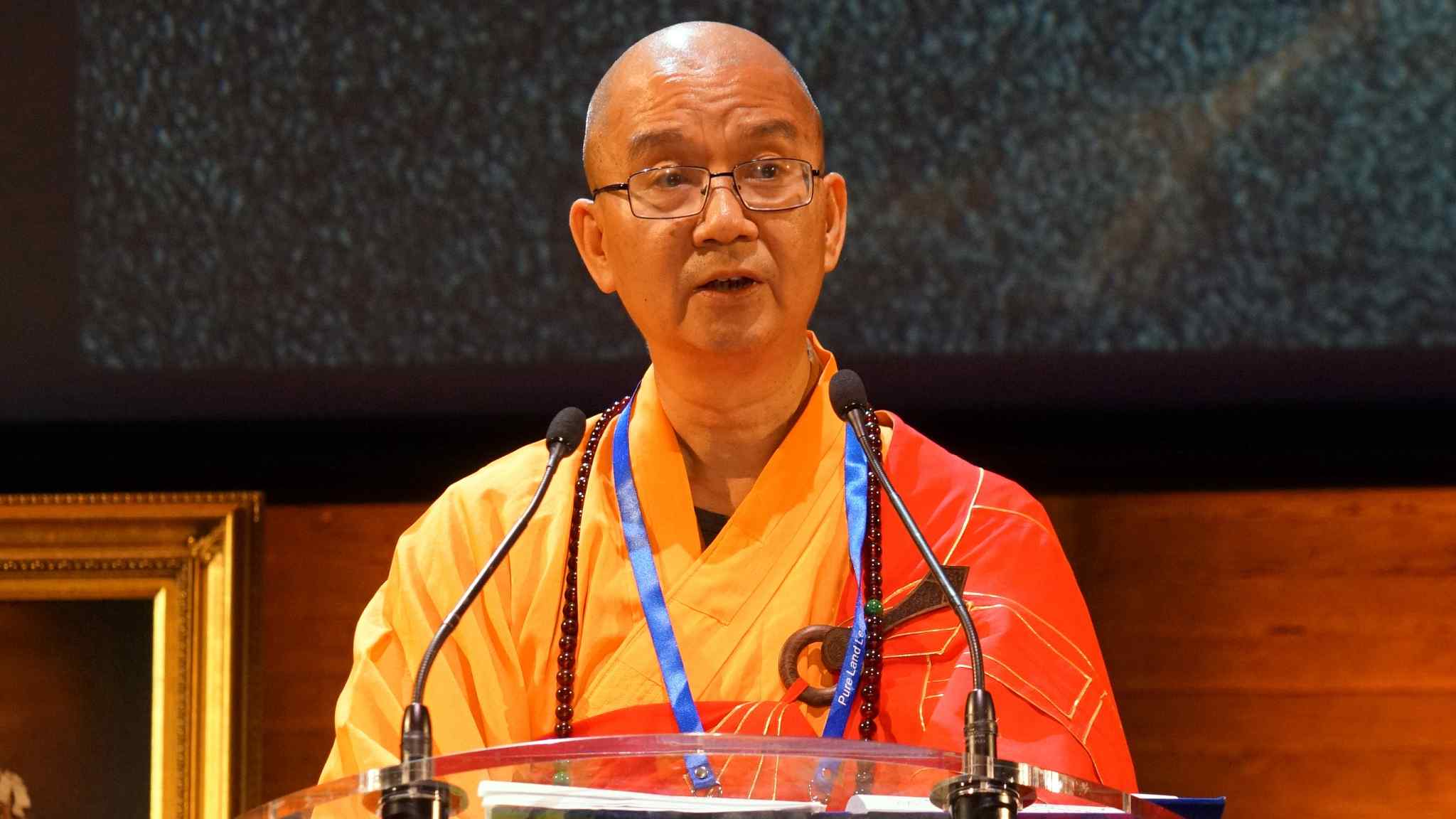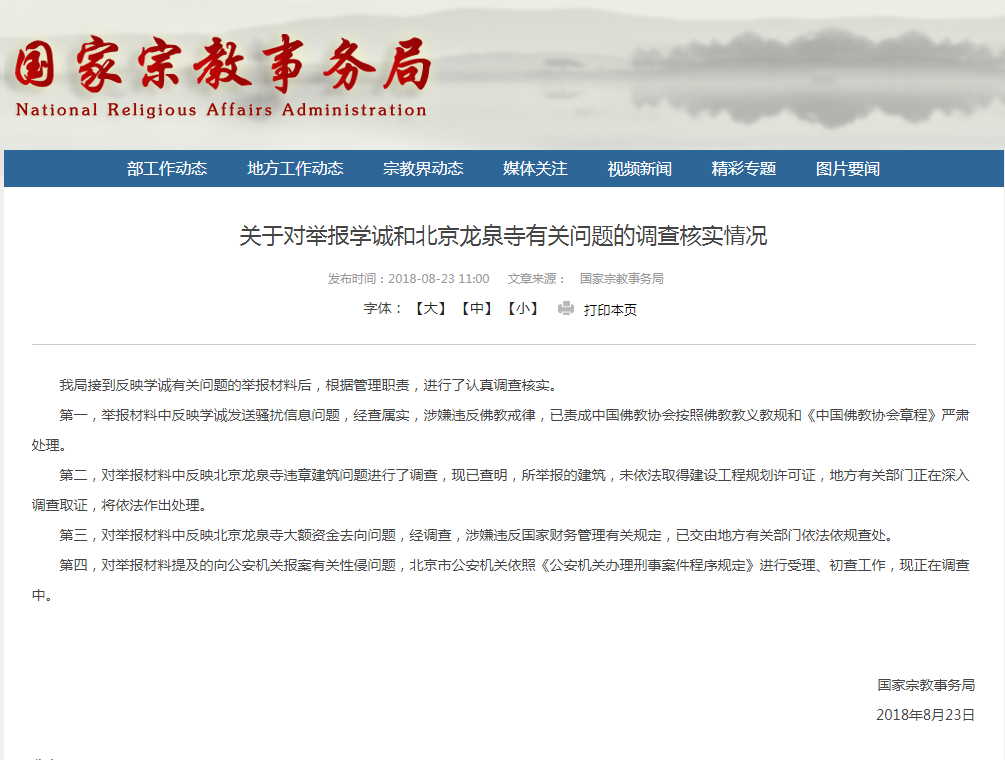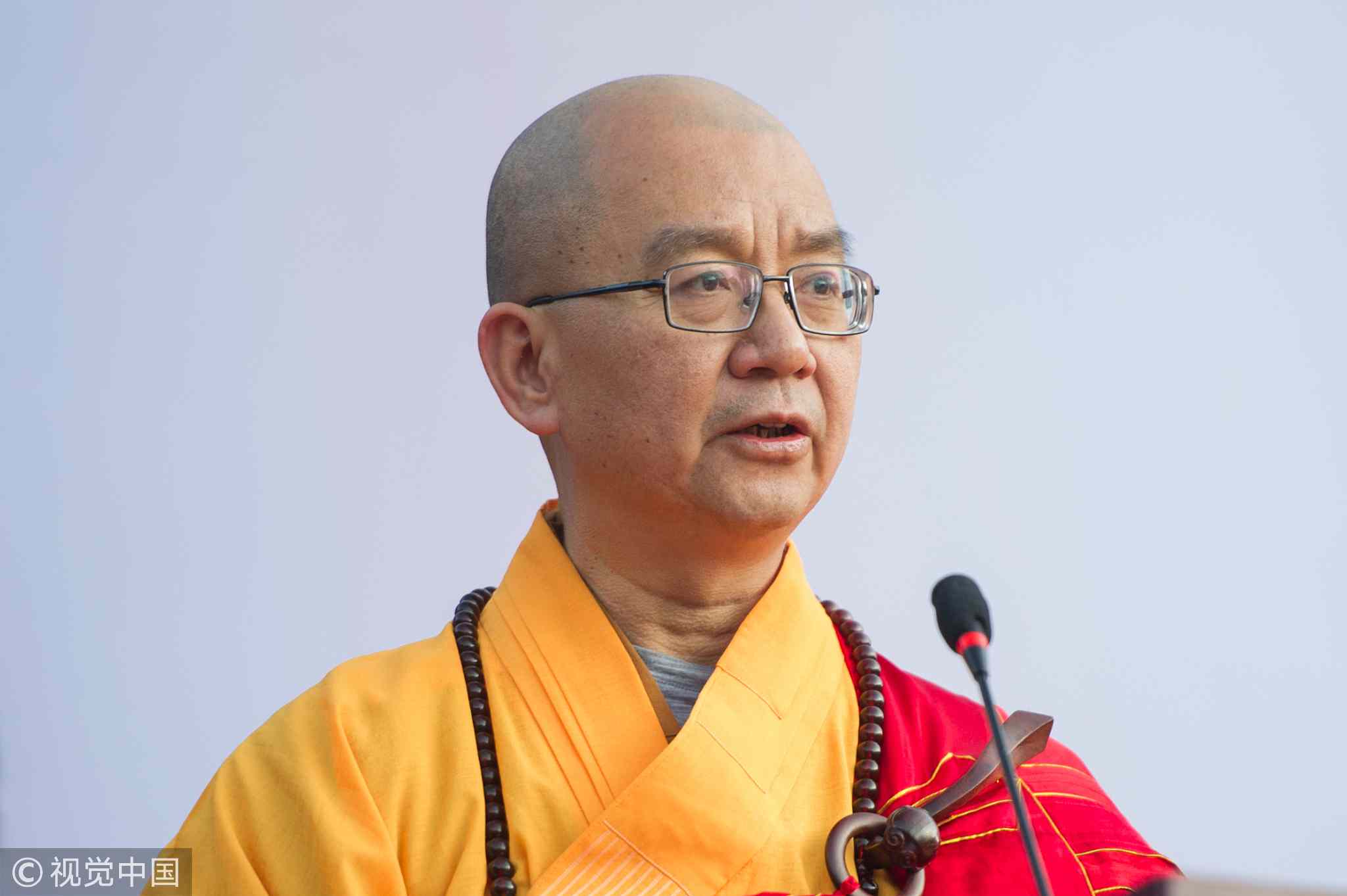
China
12:09, 24-Aug-2018
Top Chinese Buddhist monk faces investigation over sexual harassment claims
Updated
11:50, 27-Aug-2018
CGTN

Shi Xuecheng, the abbot of Longquan Temple in Beijing, also the former head of the Buddhist Association of China, has been confirmed sending sexually harassing messages to nuns, according to a statement released by the country’s top religious affairs regulator.
In a statement released by China’s National Religious Affairs Administration (NRAA) on Thursday, the accusations against Xuecheng’s action to send sexually harassing messages to nuns had been verified after an investigation to the reported materials and he was suspected of violating Buddhist doctrines.

China's National Religious Affairs Administration released a statement on its official website on Thursday, saying that the accusations of Xuecheng sending seuxally harassing messages to nuns were true. /Screenshot from the official website of NRAA
China's National Religious Affairs Administration released a statement on its official website on Thursday, saying that the accusations of Xuecheng sending seuxally harassing messages to nuns were true. /Screenshot from the official website of NRAA
The NRAA had also ordered the Buddhist Association of China to severely deal with him according to the Buddhist doctrines and the regulations of the association, the statement said.
Additionally, the statement discovered the constructions in Longquan Temple unlicensed and a large amount of funds in the temple illegally managed. Thus, relevant departments are investigating into the illegal constructions and illegal use of funds in the temple, where Xuecheng was the abbot for a long term.
The statement added that the reported allegations of Xuecheng committing sexual assault were still under investigation.

Shi Xuecheng /VCG Photo
Shi Xuecheng /VCG Photo
Earlier this month, Xuecheng faced the allegations of sexually harassing several nuns, illegally expanding the scale of the temple and embezzling donations from believers in the Longquan Temple after a 95-page report was unveiled on Chinese social media and prompted a storm of debate and widespread concerns of the public.
Xuecheng later denied the allegations on his Sina Weibo account, China's Twitter-equivalent, on August 1, claiming that the informants "forged materias, distorted facts and spread false information" to mislead the public.
NRAA made an immediate response on August 2, saying that they had received the reported materials and began investigating the allegations, according to a notice released on its website.
Later, during a meeting of the Buddhist Association of China held in Beijing on August 15, Xuecheng resigned as the head of the association. Yanjue, vice president of the association, was appointed to be temporarily in charge of the affairs in the association, according to the statement released by the Buddhist Association of China on its official website.

SITEMAP
Copyright © 2018 CGTN. Beijing ICP prepared NO.16065310-3
Copyright © 2018 CGTN. Beijing ICP prepared NO.16065310-3